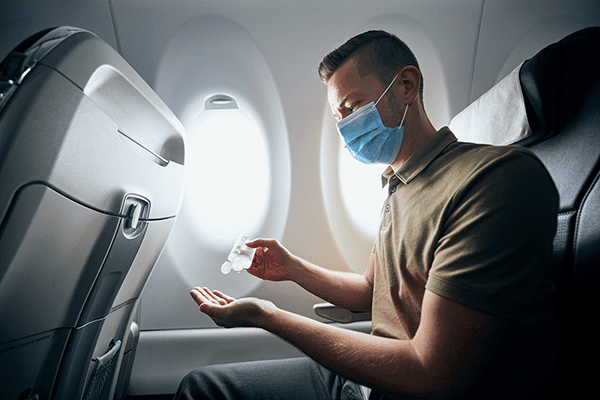The Impact of ETIAS and Covid on Foreign Nationals Taking a trip to Europe

Domestic European business travel is expected to be impacted by the epidemic and new kinds of work travel.
When businesses were forced to adopt the travel limit on abroad visits the previous year, they realized the advantages couldn’t be overlooked; for example, HSBC reported that it would save $300 million in travel expenses in 2020.
Businesses are increasingly relying on environmentally friendly tactics. According to The Financial Times, halving travel would reduce 120,000 tons of CO2 emissions across the US’s four most prestigious colleges.
It’s simple to see why flying to a foreign country for an hour-long luncheon talk is no longer beneficial for individuals and businesses.
Business travel to Europe: The Facts and Figures
According to statistics, business travel is crucial for the EU and the global economy. According to the European Union’s Tourism Trends Report, business and professional travel accounted for roughly 15% of all tourists to the EU in 2016 and 12% in non-EU destinations.
- 7 million international tourists visited Europe for business or professional purposes (77.1 million in the EU 28)
- Business travel expenditures in the United States totaled 176 million dollars (out of 1 239 million)
Corporate expenditure is particularly substantial in some European countries, according to research conducted by the GBTA. In terms of dollars, the following have been the biggest beneficiaries in 2017:
- Germany’s population is 72 million
- The United Kingdom’s is 50 million
- France is 40 million.
Countries that are more actively engaged in summer holidays gain from professional travel. Spain set aside approximately 22 billion dollars for corporate travel in 2017.
Corporate travel to Europe was affected in 2020 due to the epidemic; projections suggest that by 2022, business travel to Europe will increase to 52% of what it was in 2019. They’re expected to expand to about 83 % of this level by 2022 and 2023 before recovering to pre-COVID norms by 2025.
Possibilities for business travel in the EU have been established due to COVID-19.
Tourism and business excursions are becoming more evident due to the current coronavirus outbreak. States that rely primarily on international tourism and expenditures have seen significant revenue sources disappear, potentially resulting in millions of job losses and economic growth stalled.
However, great vaccine availability in European nations and the adoption of the EU vaccination certificate as a travel requirement are expected to increase business travel in Europe in the future dramatically.
COVID immunization certifications and test results can be safely stored digitally. This EU Electronic vaccination certificate doubles as a COVID passport, enabling more accessible travel between EU member states. It went into effect on July 1, 2021, throughout Europe’s Schengen Zone.
THEREFORE, the QR codes are supplied to border agents on their cellphones, allowing travelers to escape being detained when they arrive in Europe. IATA has produced a smartphone app named the IATA Travel Pass to help travelers with coronavirus-related restrictions when traveling.
On the other hand, the EASA and (ECDC) have recommended that people flying worldwide for 72 hours be exempt from the quarantine barn.
WTTC has praised the proposal, noting that it can considerably boost the economy and rejuvenate the corporate tourism business in international locales.
Gloria Guevara, WTTC President and Executive Director said: “The return of business travel is vital to drive the world economic revival, as it was last year.” The entire value of inbound corporate travel to Europe was USD 111.3 billion, with a total value of USD 272 billion.”
COVID testing before departure instead of upon arrival is a different way to remove barriers and promote mobility.
These suggestions consider the reduced risk of falling ill that passengers face when visiting for a short period of time, particularly on work trips when public contact is minimal.